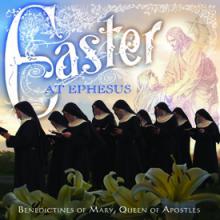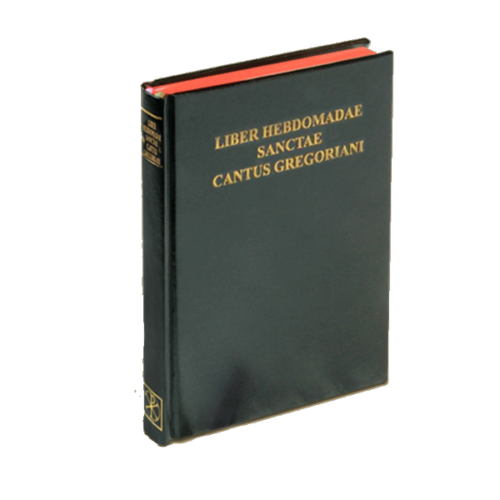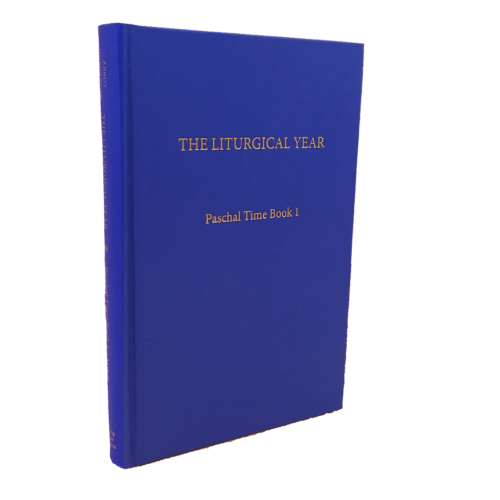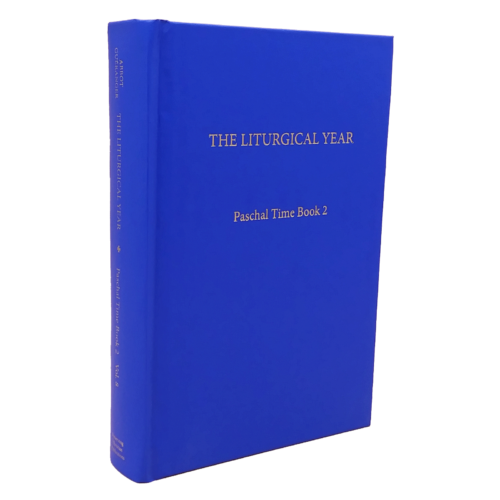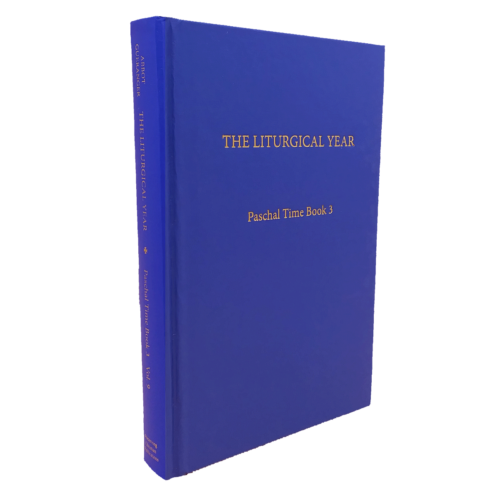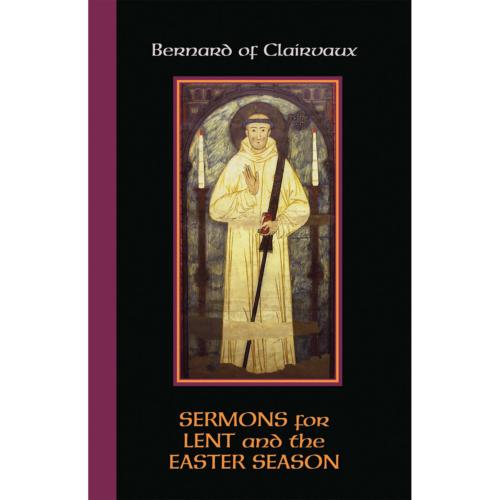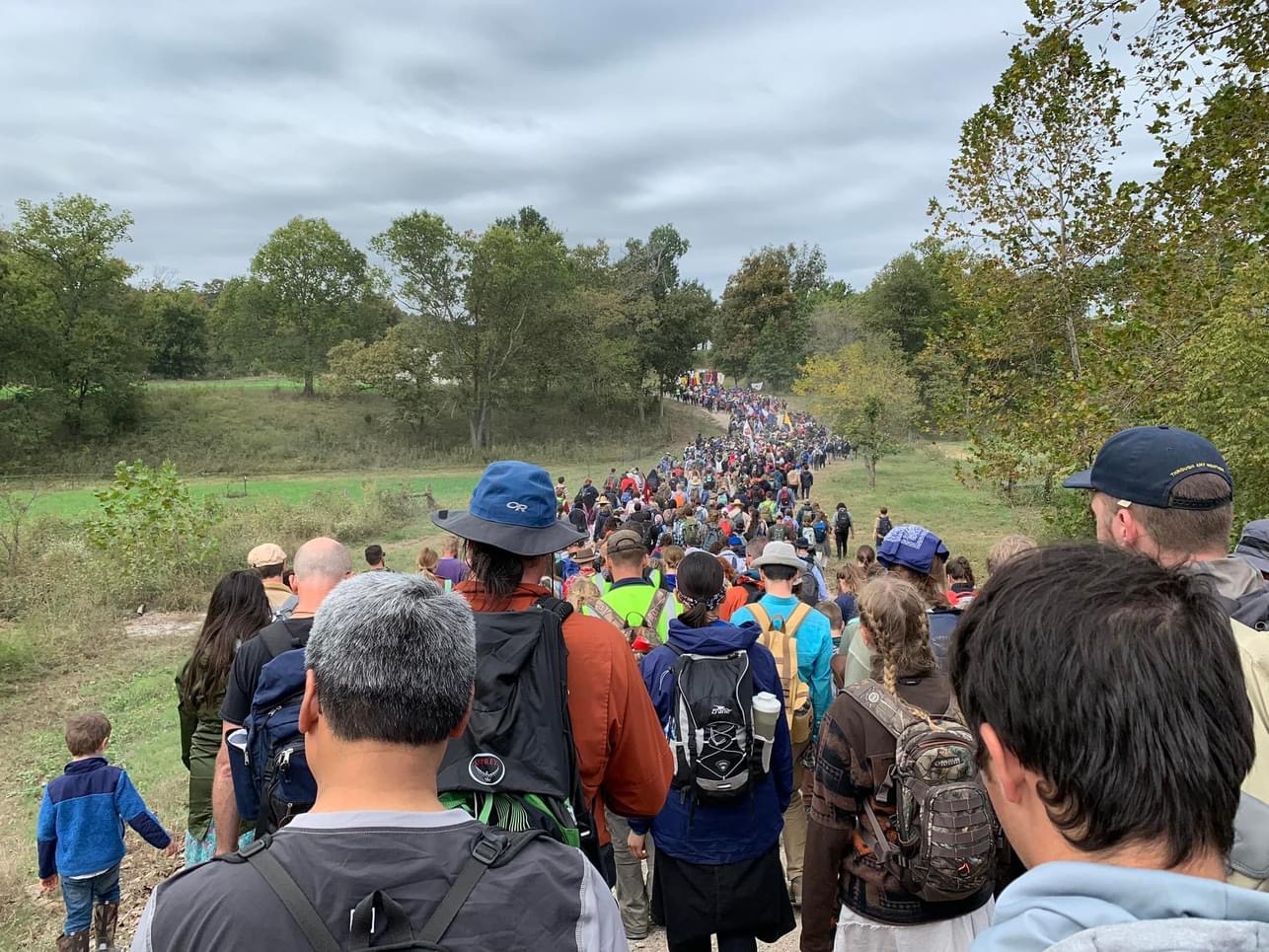Dear Friend of Clear Creek Abbey,
There is a little word whose worth is impossible to measure. Its origins are somewhat mysterious, but it emerges from the prayer of ancient Israel and echoes down the ages, animating the prayers of the early Christians and finding a place even in the final chapters of the Apocalypse. It is especially present in the Church’s liturgy at Easter and throughout Paschaltide. It contains the Divine Name and much more. You have no doubt guessed by now what this little word is.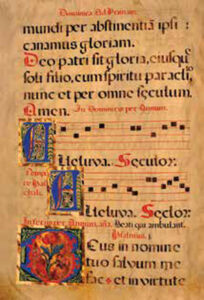
Saint John heard it sung with a voice that shook the heavens: “I heard as it were the voice of a great multitude, and as the voice of many waters, and as the voice of great thunders…” (Apocalypse 19:6). The faithful repeated it, as historians tell us, as an exclamation of joy, not only in the liturgy, but when working in the fields or at sea. The Christians in Britain, it is recalled, when attacking their enemies on one occasion, shouted it, and this unusual battle cry inspired them with such courage that they gained the victory. This happened in the year 429 at Maes Garmon, near Mold on the Welsh border. Pope Saint Gregory the Great, writing at the end of the sixth century, says in astonishment: “Behold the Britons, whose tongue was only capable of uttering barbaric words, the sound of which grated on the ear, have now begun to sing a new word…,” and he meant that very word of which we have been speaking, a word the barbarians learned through the prayers of the Church after their conversion. (See for most of these details, Abbot Cabrol, O.S.B., Liturgical Prayer: Its History & Spirit (New York: J.P. Kenedy, 1922), pp. 44-45).
This word, though of no great length, has two parts. The first part derives from the Hebrew word meaning praise, hallel. The second part derives from the Divine Name in Hebrew, Yahweh, which abbreviated “Yah”, or as in the syllable rendered in Latin, “-ia”. Together, the two parts mean giving “praise God” or “praise the Lord.” So simple.
In fact, this little word is a rather exact description of our life as Benedictine monks. We spend a great deal of our day every day occupied in Divine praise, in the “work of God (opus Dei)”, as Saint Benedict calls it, and he adds that nothing we do should be preferred to it. Seven times each day and once at night we meet in the church to perform this sacred “work” or duty. This one word we have been studying thus encapsulates in some sense our monastic life of praise, and that is why we are so attached to it.
During Lent, and even for several weeks leading up to Lent, we are required to abstain from the use of this little word of praise. Is that not strange? The reason is, however, that the penitential period is in this way underlined, as we are forbidden to use our great friend, the great little word. Some monastic communities and parishes go so far as to bury (literally, putting the word written on parchment or paper into the ground) this expression of joy until the end of Lent. Also, after this period of fasting from food and of fasting from this word of praise, it is with the greatest joy that we hear it again at the end of the Paschal Vigil, where it resounds as a solemn affirmation of the Resurrection of the Messiah.
So, what is the word? Of course, … it is the Alleluia. The Servant of God, Dom Prosper Guéranger, founder of our Congregation of Benedictines, used to tell his monks, “Be alleluia from head to toe!” (Cited in The Spirit of Solesmes [Tunbridge Wells: Burns and Oates, 1997], page 137). In fact, we all need to cover ourselves with this word of praise, as with a precious mantle or a spiritual breastplate, against our adversary, the devil, who prowls around seeking whom he may devour. (See I Peter 5:8). More importantly, we need it to keep ourselves united with the Risen Lord, as we learn to employ better and better the noble language of Divine Praise.
We monks keep you in our hearts as we pray the Divine Office each day, and we count on your prayers and material help too, in order to pursue our vocation in the Church as monks of the great family of Saint Benedict. Amen. Alleluia.
br. Philip Anderson, abbot



